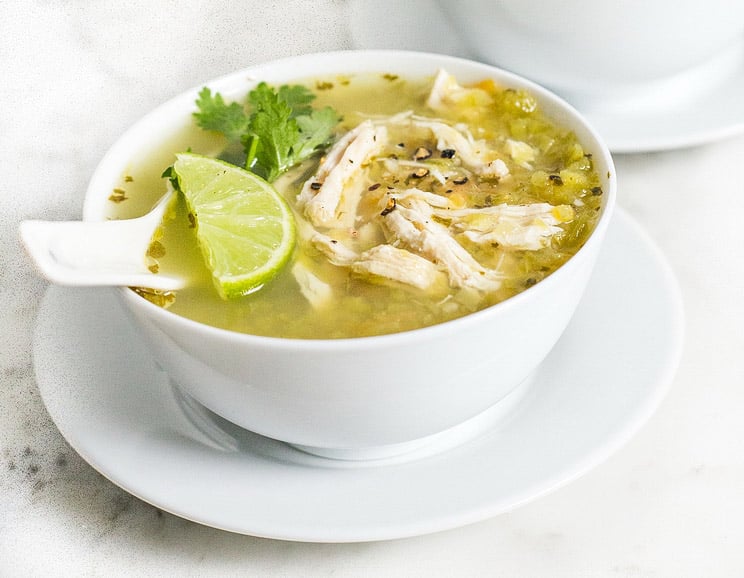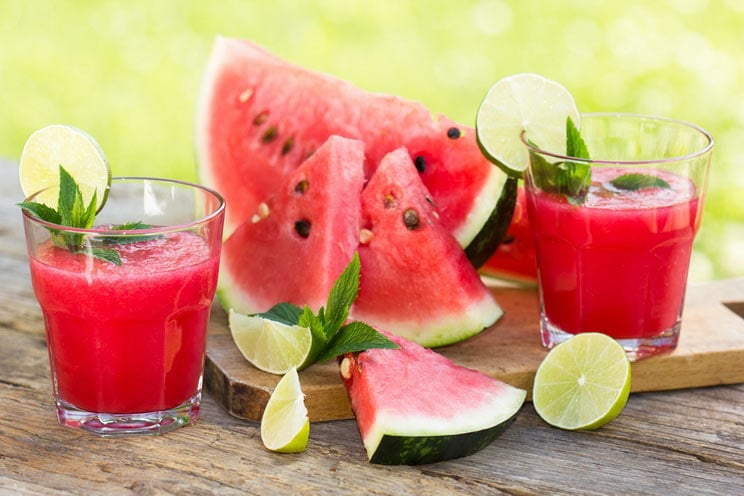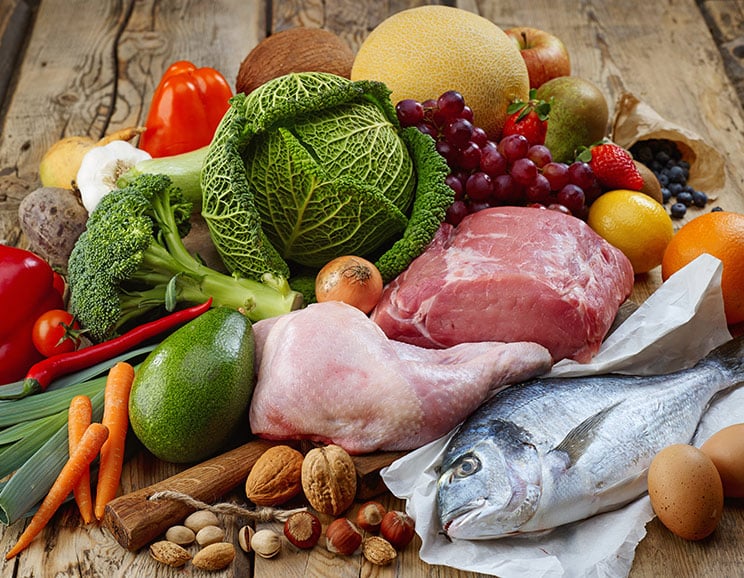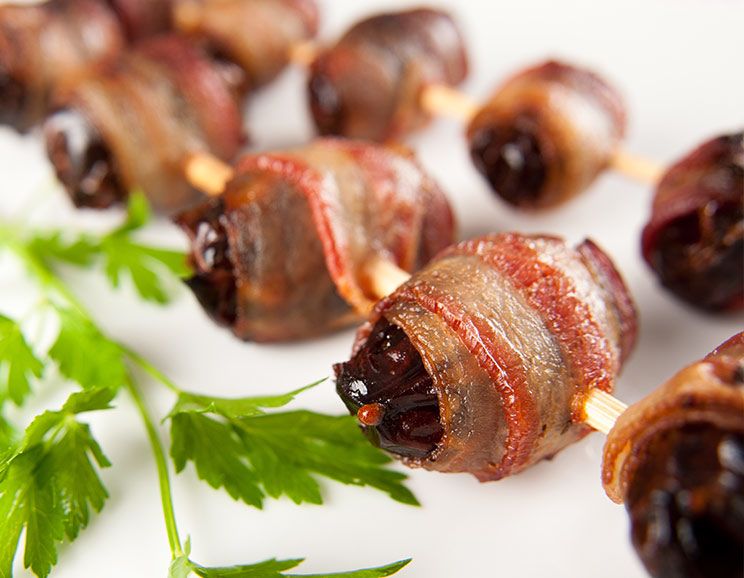The ancestral diet revolution is in full swing, and, as a result, more and more athletes are choosing to adopt a Paleo-based approach to eating in order to improve their performance. One question I get asked a lot by clients who are thinking about going Paleo or even those already in the community is “Are there specific foods that can help me with my athletic performance goals?” The answer is absolutely yes.
One of the reasons I believe the Paleo diet is the best template for athletes to build a perfect personalized diet from is because, by definition, it includes all of the key factors you need to be healthy, recover well and perform at your best when exercising intensely. With that in mind, here are my top 5 Paleo performance foods that should be a staple for almost all athletes.
1. Eggs
We should primarily be emphasizing protein when discussing exercise, performance and building lean muscle. Wild game meats, grass-fed beef, free-run poultry and wild fish should all be staples of an athlete’s diet. However, eggs often don’t get the attention they deserve!
Eggs are the most complete source of amino acids and rank the highest when it comes to assessing protein quality based on their biological value (BV) and protein digestibility corrected amino acid score (PDCASS – impress your friends with that mouthful!). [tweet_quote] You don’t have to go all Rocky Balboa, but in general, male athletes should aim to consume 24-36 grams of protein per serving (4-6 eggs), while women should aim for 20-30 grams (3-5 eggs). [/tweet_quote]
Eggs have all the things you look for in a high-quality protein: the greatest quantities of all the essential amino acids that your body cannot produce and must obtain from food, and the highest concentrations of branched-chain amino acids (BCAAs) that make up one-third of the amino acid pool in your muscle and help to trigger the genetic mTor pathway that upregulates muscle protein synthesis.
Eggs also contain an abundance of other key nutrients, including omega-3 fats for cardiovascular health, vitamin D and A for immune support, choline for better brain function, vitamin B12 for energy, and selenium to maintain adequate metabolism and thyroid function.
You don’t have to go all Rocky Balboa and eat them raw first thing upon rising, but in general, male athletes should aim to consume 24-36 grams of protein per serving (4-6 eggs), while women should aim for 20-30 grams (3-5 eggs). They make a great breakfast option, but plan to alternate every other day to keep variety in your diet.
2. Caffeine
Countless performance-enhancing supplements are now available, some of them better than others. But if you want to find the best supplement to improve your performance, look no further than your morning cup of joe!
While coffee is a gray area in the Paleo community, for me an ancestral approach to performance forces you to get back to basics (i.e., eat real food) and steers you away from the marketing hype and self-proclaimed “latest and greatest” manufactured performance-boosting products.
Caffeine, found naturally in tea and coffee, is truly one of the best performance-enhancing options in the world. In fact, supplemental caffeine is the “secret” ingredient in virtually all the marketed weight loss and performance supplements because it’s so effective! Why not get it from its natural source?
What can caffeine do for you? Let’s take a closer look.
Caffeine is a great tool to use to improve your work capacity. Studies of all types of athletes – from cyclists and runners, to weightlifters and martial artists – find that caffeine intake improves the amount of work you can perform during a given bout of exercise.
That means more sets and reps during lifts (although not a vastly improved 1-rep max), more hill repeats, more miles on your run, and more rounds in the ring. (1) Not only that, caffeine helps to decrease perceived exertion, which means your exercise feels easier. (I am quite sure all athletes who push themselves to the limit would love training to feel a little easier!). [tweet_quote] When it comes to caffeine, be sure to estimate your daily intake to maximize the benefits and minimize the drawbacks. [/tweet_quote]
The research shows the ideal dose of caffeine is 3 mg per kilogram of body weight. For example, a 180-lb. male (divide by 2.2 to calculate weight in kg = 81.8 kg) would aim for about 240 mg of caffeine before exercise, while a 150-lb. female (divide by 2.2 = 68.2 kg) would shoot for about 200 mg. A typical cup of coffee contains 150-200 mg of caffeine that gets absorbed into your bloodstream after 15 minutes, reaching peak concentration in your blood about 60 minutes after ingestion.
A word of caution: going above 6 mg/kg body weight can elicit negative side effects like irritability, anxiety, trouble sleeping, and even fatigue and low mood. Remember, a large cup of coffee will have between 400-600 mg of caffeine, a very large dose, so be sure to estimate your daily intake to maximize the benefits and minimize the drawbacks.
3. Saturated Fats
For the last 30 years, saturated fats have been erroneously considered the number one enemy in conventional medicine, supposedly responsible for heart disease and poor health.
However, the scientific community is now clear that saturated fats aren’t bad for us, and in fact are extremely important for overall health. Sports nutritionists also realize that saturated fats are a key weapon for athletes to accelerate recovery from intense training.
Saturated fats play a critical role on a couple of fronts. First, they are shown to help athletes recover from intense exercise and overtraining. Studies have found that athletes who are run-down during periods of intense training typically have low cortisol and low testosterone levels to go along with fatigue, excessive delayed onset muscle soreness (DOMS), low libido and low mood… all hallmarks of overtraining. The research shows that athletes who follow high-fat diets (e.g. the Paleo diet) rather than low-fat diets recover much more effectively from intense training, are able to correct low hormone levels and avoid classic signs of overtraining.
(Read: The Facts About Fat}
Saturated fats can also be a great tool for endurance athletes, because unlike most fats, they can be absorbed directly by the gut and used for instant energy (other types of fat must be first be processed by the liver). This means saturated fats like medium chain triglycerides (MCTs) can effectively be used like carbohydrates for energy during runs, rides, swims, or metabolic conditioning (like bootcamps or CrossFit WODs).
However, because you get 9 calories when using fats for fuel versus 4 calories when using carbs, you dramatically improve your fuel efficiency. This can translate into better performance. (2) Remember, to improve fat-adaptation as a fuel source will take at least several weeks of a higher-fat, moderate-protein and low-carb diet to truly enhance your capacity to rely on primarily fat for fuel.
Excellent sources of saturated fats and MCTs are butter, ghee, coconut oil and red palm oil. You may even want to try a supplemental form with higher concentrations of MCTs to get more bang for your buck. Try 1 tbsp. in your pre-workout meal or snack and then build your way up from there. Experiment to find the right amount for you, as some athletes note dramatic improvements, while others can get bogged down by stomach cramps.
4. Beets
Beets have been in the news lately because of their newly discovered ability to improve endurance exercise. The consumption of large quantities of beets has been found to dramatically increase blood nitrate levels (not to be confused with nitrites, the preservative found in deli meats). This promotes nitric oxide (NO) formation, which is a powerful vasodilator that produces significant endurance benefits in athletes.
A recent study from Exeter University in the United Kingdom showed that athletes consuming concentrated beetroot juice before an endurance training bout resulted in less energy expenditure to maintain the same pace. (3) Although several studies support this finding, the benefits seem to be limited to novice or moderate-level exercisers. If you’re an elite performer, the research is mixed, so you may not experience any benefit. (4)
Try consuming 500ml of beetroot juice or the equivalent in concentrated form about one hour before exercise, and see for yourself if dietary nitrates may be the missing link that helps upgrade your performance. (Be aware that your urine will turn a more darkish yellow/red color following beet consumption. This is perfectly normal!).
5. Leafy Greens
Exercise is catabolic by nature as your body breaks its cells down to fuel training. This training stress on the body leads to oxidative stress and the production of free radicals that can damage your cells. Protecting against this oxidative damage is crucial for recovery and, ultimately, future performance.
Leafy greens are loaded with antioxidants that protect against exercise-induced oxidative stress. Recently, the British Journal of Nutrition showed that the both short- and long-term intake of watercress – a leafy green loaded with beta-carotene and alpha-tocopherols – was able to significantly blunt exercise-induced DNA damage.
(Read: 3 Top Veggies for Brain Health)
The great thing about a Paleo diet is that it’s not just rich in protein, but also rich in greens. Upgrade your recovery by including leafy greens like watercress, kale, spinach, chard, and arugula at all your meals.
Whether you’re following a strict Paleo diet or not, be sure to include these five primal performance food staples when peaking for competition and you’ll soon bust through plateaus and achieve your performance potential. Be sure to individualize the doses to find the right balance for you and your sport.
Happy training!




 Paleo Peppermint Patties
Paleo Peppermint Patties








Show Comments